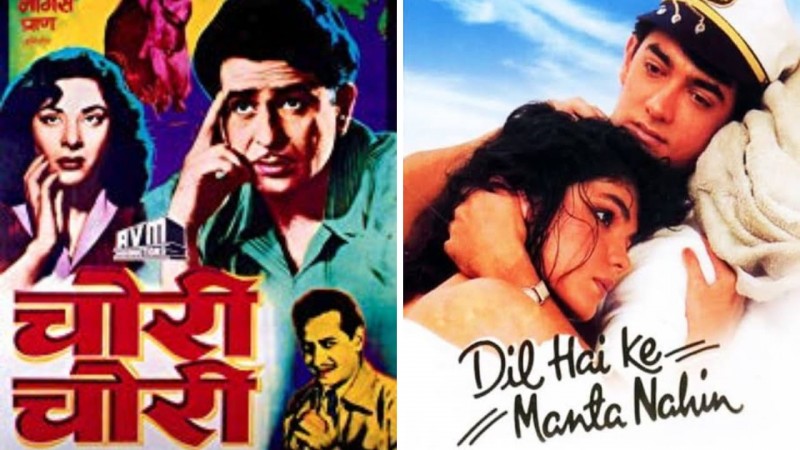
Some stories in the world of cinema transcend eras and enthrall audiences from all walks of life. This phenomenon is demonstrated in Mahesh Bhatt's romantic drama "Dil Hai Ki Maanta Nahin" (1991). Although praised for its own qualities, the movie has a closer relationship to a legendary hit from the past. This article explores the intriguing story of how the romantic genre in Indian cinema has evolved through the use of the remake 'Dil Hai Ki Maanta Nahin' of the classic movie 'Chori Chori' from 1956.
With its endearing love story, the Indian cinematic classic "Chori Chori" won audiences over. Anant Thakur's film, which starred the legendary duo of Raj Kapoor and Nargis, was directed by him. Its plot, which revolved around chance meetings and developing love, served as a model for depicting the essence of romance on screen. Due to the movie's enduring appeal, filmmakers decided to rediscover its magic years later.
With "Dil Hai Ki Maanta Nahin," which was released decades after the release of "Chori Chori," Mahesh Bhatt set out on a mission to update the timeless film's aesthetic. The movie, which starred Aamir Khan and Pooja Bhatt in the lead roles, kept the main themes of love, serendipity, and difficulties in defying social expectations. It nevertheless provided a novel viewpoint on interpersonal interactions and highlighted the evolving nature of love in the contemporary era.
'Dil Hai Ki Maanta Nahin' is influenced by 'Chori Chori,' but it also adds its own distinctive narrative elements and contemporary sensibilities. Aamir Khan and Pooja Bhatt's characters, who echo the plot of the classic movie while catering to the tastes of the 1990s audience, set out on a journey that has unexpected twists and turns. The movie's careful balance of adaptation and innovation demonstrates the skill involved in updating a classic tale for the modern age.
The remake provides an intriguing look at how societal dynamics and values changed between the 1950s and the 1990s. In 'Dil Hai Ki Maanta Nahin,' the themes of rebellion, self-discovery, and the pursuit of happiness take center stage, reflecting the changing aspirations and mindset of the younger generation. Through the prism of romance, these changes are reflected, emphasizing the transition from conventional to more individualistic choices.
The film "Dil Hai Ki Maanta Nahin" pays homage to both the enduring legacy of "Chori Chori" and the perennial themes of love and destiny. While creating a modern story, the filmmakers show respect for the original works that served as the basis for their work. A film that connects with viewers from various eras is produced by the interaction between homage and innovation.
The 1991 movie "Dil Hai Ki Maanta Nahin" is a stunning illustration of how the magic of a vintage movie can be reimagined for a contemporary audience. It pays homage to "Chori Chori" (1956) and captures the essence of enduring romance while illuminating societal change and aspirations. The journey of the film from the heyday of Indian cinema to the vibrant 1990s era demonstrates the enduring power of storytelling and the capacity of filmmakers to cross generations through the medium of film.
The Untold Financial Stories of 'Khud-Daar' Starring Mehmood and Amitabh Bachchan
Neetu Singh's Partial Song Appearance in 'Yaarana'
When Bengali Magic Met Bollywood: The Story Behind 'Khali Haath Shaam Ayi' in 'Ijaazat'